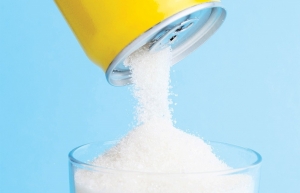Tax increases must be effective to support beverage groups
Enterprises in the industry comply with the law, making a major contribution to the state budget, estimated at nearly $2.5 billion annually, including a special consumption tax (SCT) of more than $2.35 billion. The beverage factories are distributed throughout most cities and towns across the country, creating direct and indirect jobs for millions of workers, while pioneering in sustainable development and environmental protection, and actively participating in social work.
 |
| Nguyen Van Viet, chairman Vietnam Beer-Alcohol-Beverage Association |
In 2023, the beverage industry recorded a decline in both sales and production. According to data from the General Statistics Office, the net profit of the entire beverage manufacturing and trading industry one year since the pandemic has decreased by two-thirds. To date, although there have been certain recovery steps, the production capacity of the entire industry is still below 80 per cent.
In 2024, the whole industry continues to face difficulties that show no signs of abating. Alcoholic beverages are products subject to many restrictions from the law on preventing harmful effects of alcohol, law on taxes, commercialism, advertising, and e-commerce, while the current VAT reduction policy does not apply to the industry.
The price of input materials for the beverage industry has increased by as much as 30 per cent, and malt has increased by up to 40 per cent. Purchasing power decreased while the inventory index has risen.
Enterprises must make mandatory contributions to environmental protection fees according to the environmental protection law, and Decree No.08/2022/ND-CP stipulates in detail a number of environmental protection laws that will increase the burden on the business. In addition, businesses have been focusing more resources to convert to using green materials, protecting the environment, and cutting greenhouse gas emissions.
The Ministry of Finance has announced a draft dossier requesting the development of an amended SCT, and is in the process of requesting additions to the law and ordinance-making process for 2024-2025, with a programme expected to be discussed in October and approved in May 2025.
In addition to that, we know that the VAT law and corporate income tax law are also being proposed for amendments.
To contribute to ensuring that the SCT law is applied at a reasonable time, harmonising the interests of the state, consumers, and businesses is crucial.
The 2024 National Assembly session should consider some recommendations. Firstly, it is necessary to consider adding a SCT project to the law-making programme from 2025 onwards and consider the synchronisation and consistency of tax laws.
Secondly, it is necessary to consider the effective time of the SCT law, which is 12 months after the amended SCT law is promulgated, and reasonably extend the implementation roadmap so that businesses have enough time to implement policies as well as avoid the impact of increasing market shock.
Proposals need to be based on a scientific basis and refer to international experience. They must evaluate the effectiveness of the most recent tax increases, and comprehensive impact assessments not only on subjects directly affected but also include goals such as health, the social budget, and subjects indirectly affected.
 | Sugar tax plans see detailed additions Vietnam is closer to adding a tax on soft drinks based on sugar content to encourage businesses to produce and import low-sugar soft drinks. |
 | Valuable lessons can direct sugary beverage rules Tax policy is an effective financial measure to control consumption of sugar-sweetened beverages (SSBs). The significant prevalence of obesity and diet-related non-communicable diseases (NCDs) driven by increasingly unhealthy dietary patterns is of global health concern. Significant attention has been given to curbing excess sugar intake and particularly SSB consumption. |
What the stars mean:
★ Poor ★ ★ Promising ★★★ Good ★★★★ Very good ★★★★★ Exceptional
Related Contents
Latest News
More News
- Citi economists project robust Vietnam economic growth in 2026 (February 14, 2026 | 18:00)
- Sustaining high growth must be balanced in stable manner (February 14, 2026 | 09:00)
- From 5G to 6G: how AI is shaping Vietnam’s path to digital leadership (February 13, 2026 | 10:59)
- Cooperation must align with Vietnam’s long-term ambitions (February 13, 2026 | 09:00)
- Need-to-know aspects ahead of AI law (February 13, 2026 | 08:00)
- Legalities to early operations for Vietnam’s IFC (February 11, 2026 | 12:17)
- Foreign-language trademarks gain traction in Vietnam (February 06, 2026 | 09:26)
- Offshore structuring and the Singapore holding route (February 02, 2026 | 10:39)
- Vietnam enters new development era: Russian scholar (January 25, 2026 | 10:08)
- 14th National Party Congress marks new era, expands Vietnam’s global role: Australian scholar (January 25, 2026 | 09:54)

 Tag:
Tag:



















 Mobile Version
Mobile Version